We’re getting closer now to the top of the list. Here are six more standout shows:
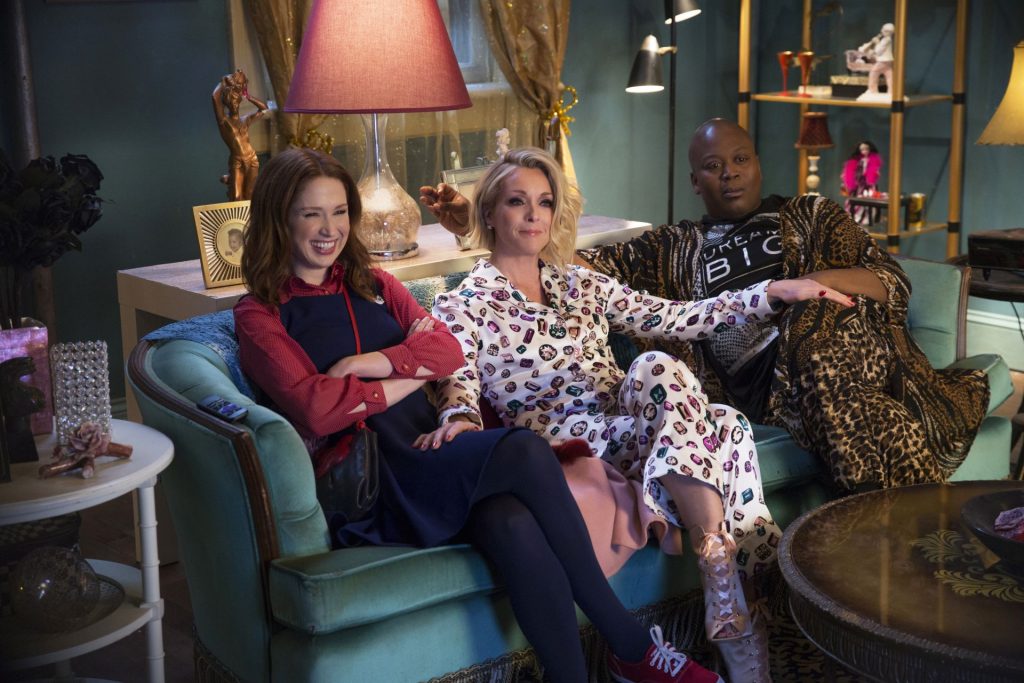
12. Unbreakable Kimmy Schmidt
Season 4
Netflix
Kimmy Schmidt‘s final “season” has, as has become weirdly commonplace in recent years, been split in two. (The final six episodes, the “second half” of season 4, were just released less than a week ago.) What I did think about the first “half” of season 4 (screw this, I’m just calling it season 4) is that the six episodes we did get were of the show at the top of its game. Highlights include Lillian tagging along with Kimmy to a tech conference that ends up with her being mistaken as a guru and convincing everyone to let loose and have sex, and “Party Monster: Scratching the Surface,” entirely given over to a fictional Netflix true crime documentary about Reverend Richard Wayne Gary Wayne, Kimmy’s abductor, arguing for his innocence (primarily through an idiot DJ and an MRA who lives with his mother). As the show goes into its final episodes, it’s hitting its stride on all fronts, and even if I don’t have a fun video like last year’s “Boobs in California” to embed, “Party Monster” works a stand-alone episode if you’ve never seen the show and just want to get a taste of its humor.
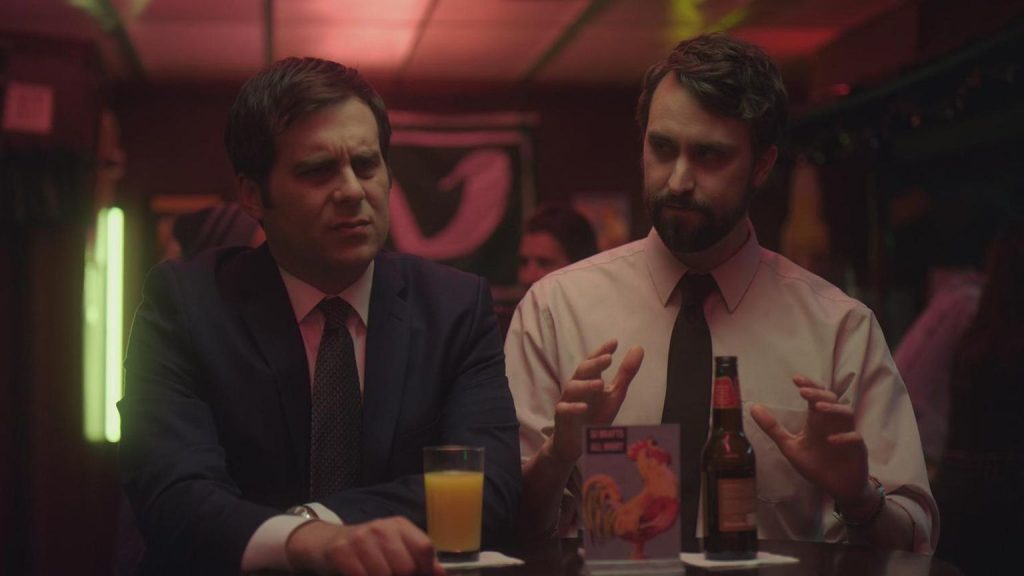
11. Corporate
Season 1
Comedy Central
One of the best new shows of the year, Corporate arrived with a fully-formed worldview, dark and bleak and, in truth, the natural endpoint to office comedies which either highlight the workaday drudgery (The Office) or the clearly evil omnipotent corporation (Better Off Ted). Created by stars Matt Ingebretson and Jake Weisman along with Pat Bishop, the show’s palette of grays and dim lighting give it the bleak feel of the late-capitalism perspective on corporate life: A relentless grinding away of humanity, without hope for better, simply because it’s the only way to survive in a world which no longer even makes a pretense toward freedom, of markets or otherwise. (“I’d rather give up on my dreams and live in a one-bedroom apartment than chase them and live in an efficiency apartment.” “Capitalism is a prison.”)
But, uh, it is a comedy, and so, again calling back to The Office and Better Off Ted, it mines hilarious material both from the mundane ways people cope with corporate life (and particularly as contrasted by childishly-optimistic Matt vs. coping-through-nihilism Jake) as well as the absurdly evil maneuverings of Hampton DeVille itself, at this point really heightened from the real world only in presentation and not substance (best represented by the intense and imposing presence of Lance Reddick as CEO Christian DeVille). Two standouts among the season are “The Long Meeting,” which brings in Fred Willard as an old-school member of upper management (and in typical Fred Willard fashion, everything that comes out of his mouth is pure gold), and season finale “Remember Day,” which is the sort of surprising-yet-inevitable depiction of a corporation co-opting a tragedy for profit that it’s as surprising it hasn’t been done before now as it is funny.
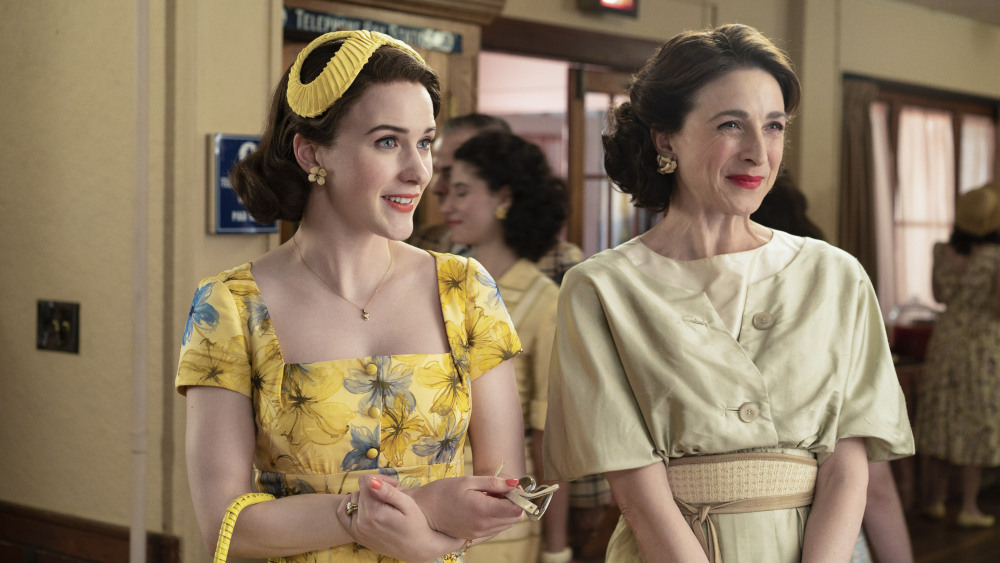
10. The Marvelous Mrs. Maisel
Season 2
Amazon Prime
And in the very opposite of visual style from Corporate, we have The Marvelous Mrs. Maisel. I’ve said many times before that I don’t care about the visual aspects of television nearly as much as the storytelling aspects, but sometimes a show comes along with such a precise and vivid sense of style that it simply compels my attention. The Marvelous Mrs. Maisel is one such show, and season two is even more on point with the fantastic recreation of 1950s New York City (and Paris, for a bit) and the costume design. (Hell, even I’m jealous of Midge’s ability to coordinate and wear hats.)
Of course, none of that would mean much if the show wasn’t a lot of fun to watch, too, with great performances all around and the highly stylized Amy Sherman-Palladino dialogue that rises up to the level of care put into every other aspect of the production. Midge’s growth into a standup is almost preposterously easy as depicted on the show, but as much fun as it is to see her perform, the more important aspect of the season is how her double life is starting to fray at the edges and eventually become untenable to maintain as a secret. Perhaps just as important is how Midge’s father Abe starts reconciling his inclinations for the familiar and the conservative with the fact that his wife and children have rich inner lives that don’t jive with his impressions.
The show has some great comedic moments, too– and not just when Midge is on stage. The Bell Labs scene had possibly the best recurring-buzzer gag since “Complaint Box.” And Susie, Midge’s manager, deciding she needed to be nearby to get Midge gigs while the Weissmans were at… for lack of a better term, I’m calling it “Jewish Family Summer Camp” in the Catskills, doing so by just buying a plunger and posing as a staff plumber. (And it’s pretty sweet how the real staff warms to her.)
Substance is more important than style, but whew, when the style is so thoroughly coordinated in all aspects and so dazzling, style is extremely pleasurable.
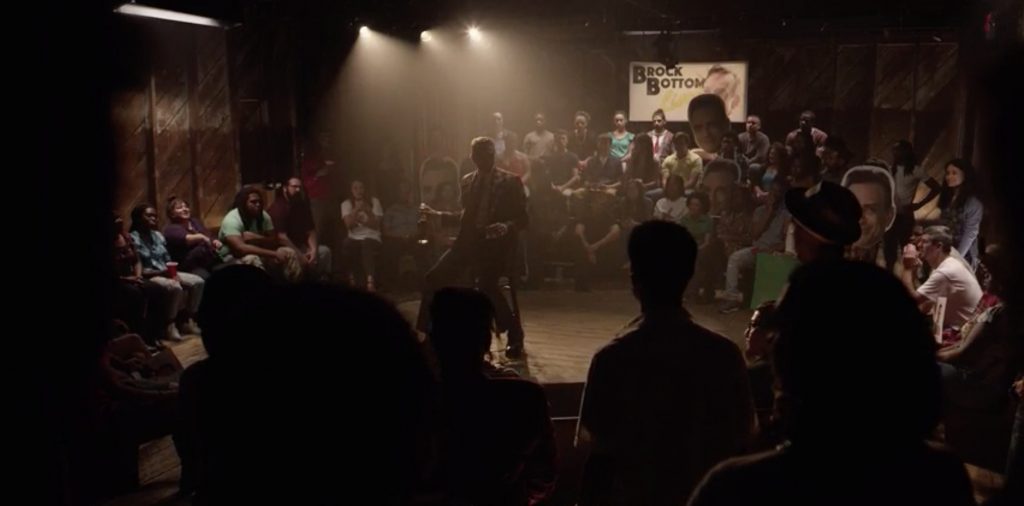
9. Brockmire
Season 2
IFC
I was a bit of a latecomer to Brockmire, but the Hank Azaria vehicle was the sort of genuinely dark comedy you don’t see enough of these days. Azaria plays Jim Brockmire, former major-league play-by-play announcer whose life went to hell after he caught his wife cheating on him. After going on a ten-year bender or so, season 1 saw him try to reclaim his career by heading to West Virginia and the minor leagues, to be the play-by-play announcer for the Morristown Frackers, and along the way delivering one of the funniest segments on TV in 2017 (his impassioned ranting about a rival town that sparks a fan riot at the game).
Season 2, with Jim’s success in Morristown having translated into a job with New Orleans’ AAA team– as well as into his “Brock Bottom” podcast, celebrating his debauchery and bringing in more money than his actual job– maybe isn’t quite as good as season 1 (although it’s a hard call, honestly), but has a lot to recommend for it, with the brisk pace of the plot, sidekick/producer Charles’ growth out of Jim’s shadow and into his own man, a competition with an upstart young broadcaster for a major-league job, and Jim dealing with the past in ways that are sometimes sentimental, sometimes less so. (His scene on the mound with former Morristown pitcher Pedro Uribe is a comedy highlight.)
Beyond that, the season outdoes BoJack Horseman at its own game of “formerly successful, self-destructive alcoholic talent barely crawls back at redemption,” particularly with a great scene of Jim trying to do the right thing at the worst possible time, and then most of all in the finale, when Jim hits rock bottom by taking up with someone who truly is the abyss, who’s committed to self-destruction in a way that makes everything we’ve seen Jim do up to this point seem like pretending at it.
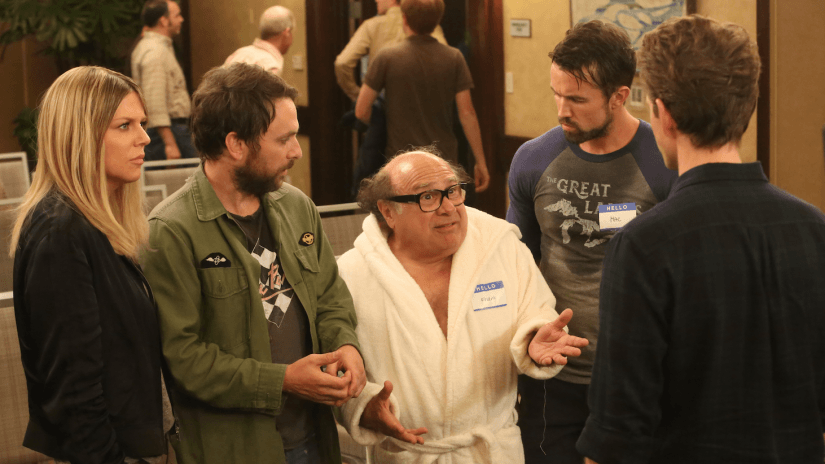
8. It’s Always Sunny in Philadelphia
Season 13
FXX
Not quite on the level of season 12, but also not nearly as uneven as critics suggested, It’s Always Sunny in Philadelphia manages to deliver in typically outrageous Sunny fashion, whether answering the question of whether Dennis will come back, competing to win an escape room (a natural fit for the Gang’s dysfunction), or… well, beating up a bunch of children. (And, of course, the Gang has taken to quoting Donald Trump with regularity.)
The Gang, in their own fashion, has tried to take on the issues of the day, from the question of how to label the bar’s bathrooms to possibly the best overall episode of the season, “Time’s Up for the Gang,” with its perfectly dark twist on the subject matter. Then, of course, there’s the season finale, surely much discussed by now, and deservedly; “Mac Finds His Pride” provided perhaps the single most stunning sequence on scripted television this year.
This part of the list, it can be hard to separate one show from another in terms of quality. Sunny gets the nod over the previous few for what is, admittedly, perhaps a sign of bias– that it was one of my few watch-it-immediately appointment-viewing shows, and it never let me down, and was outrageously funny for stretches and episodes. But who cares if that’s biased? This is all subjective anyway, and in the end I have to find a reason to break the tie. I liked the last few shows quite a bit, but I didn’t anticipate them each week the way I did It’s Always Sunny in Philadelphia.

7. Superstore
Seasons 3 and 4
NBC
There were a few missteps here and there in 2018’s Superstore episodes– I really hated what they did with Sandra, Carol, and Jerry, for example– but when the show both delivers so much good material, and is so compulsively rewatchable, I was able to overlook those for what the show delivers on. It’s consistently funny in that well-observed character-comedy way, with a great cast top to bottom– Jon Barinholtz as recurring character Marcus is a highlight; nearly everything he says is riotously funny– and even some plot points that pay off the drudgery and exploitation of big-box stores in a way one wouldn’t really expect to see on network television. (And even with some moments of kindness; see what Glenn does for Mateo in “Managers’ Conference.”)
Weirdly, the two leads might be the weakest part of the show; it seems like creator (and Office alum) Justin Spitzer wanted to create a Jim/Pam dynamic between them, but Jonah and Amy are not nearly as believable or interesting as a romance. Thankfully, the show began to shift away from the importance of that pairing and into letting all the actors do what they do best. (Besides Barinholtz, Lauren Ash and Mark McKinney rate as highlights among the main cast, and Johnny Pemberton is hilarious any time he shows up.)
The show has that feel of being easy to rewatch without ever going stale that is rare to pull off but so rewarding when a show lands that dynamic. I know Greg Daniels and Michael Schur have both gone on to do many different other things since then, but Superstore is, more than any of their shows, the modern successor to The Office.
TOMORROW: The final six.

